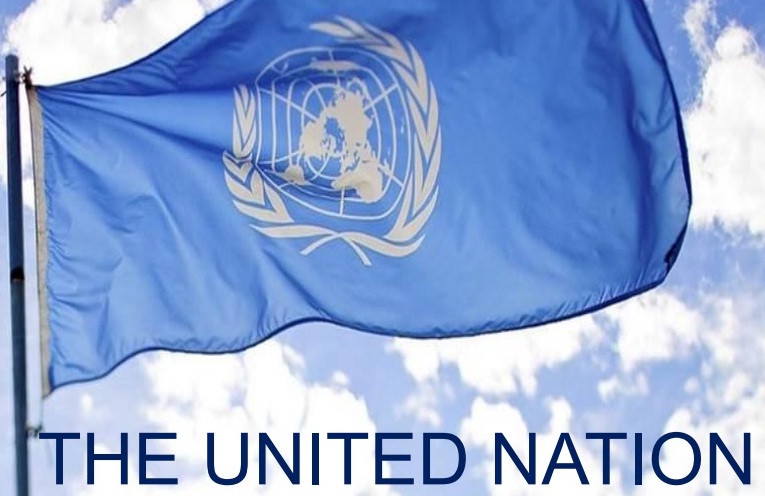The United Nations Economic and Social Commission for Asia and the Pacific is one of the five regional commissions under the jurisdiction of the United Nations Economic and Social Council.
About the Internship
The intern will work with the designated staff of the Asian and Pacific Centre for Transfer of Technology (APCTT) in the implementation of the Centre’s substantive work program.
The work program broadly involves developing and promoting regional mechanisms and platforms, capacity building of policy makers and institutions, and carrying out normative and analytical work to assist ESCAP member States in the following areas:
- National Innovation Systems (NIS),
- Technology Innovation Management,
- Development and Transfer of Technology;
- Technology Facilitation for Sustainable Development Goals (SDGs) with a specific focus on food and nutritional security, energy security, and environmental sustainability; New and Emerging technologies (e.g. biotechnology, nanotechnology, and renewable energy); Technology Intelligence Services (e.g. periodicals & publications, research & analytical studies); and Digital Strategy (websites, social media, etc. to enhance the outreach and impact of the program outputs and outcomes).
Click here to know more about the internship.
Responsibilities
The work program of ESCAP-APCTT covers analytical and normative work, policy support and advocacy, technical assistance, and capacity-building activities.
Learning Opportunities
ESCAP-APCTT provides interns with an opportunity to enhance their understanding of:
- Challenges related to the national innovation systems in countries in the Asia Pacific region;
- The processes of regional and multilateral cooperation; iii) mandates and operations of United Nations in developing countries as well as in countries with special needs in its efforts to provide policy advice, capacity building and platform for governments for achieving SDGs.
Under immediate supervision, the intern is responsible for contributing to the technical cooperation project(s) related to the work program of ESCAP-APCTT for the implementation of the SDGs.
The topic of the project will depend on the intern’s background, skills, and interests.
Other duties may include undertaking the following:
- Regular monitoring of relevant developments, policy trends and news articles related to the implementation of the 2030 Agenda and the SDGs in the subregion;
- Monitor and collect details on national policies on selected sustainable development issues of member States of ESCAP
- Collect data, generate figures and tables, describe and analyze the tables and results to support ESCAP-APCTT staff in related research and analytical work
- Attend conferences, seminars, meetings and other events and provide written highlights and briefing notes
- Provide administrative, organizational and conference management support for ESCAP-APCTT events
- Other activities as may be decided by the supervisor
Duration of Internship
The internship at the Asian and Pacific Centre for Transfer of Technology is for a minimum of 2 (Two) months with an opportunity to extend it for not more than six months, if required by APCTT.
Stipend
The internship is UNPAID and full-time.
Working Hours
Interns work five days per week (35 hours) under the supervision of a staff member in the department or office to which they are assigned.
Eligibility
To qualify for an internship with the United Nations Internship Programme, applicants must meet one of the following requirements:
- Be enrolled in a graduate school program (second university degree or equivalent, or higher); or
- Be enrolled in the final academic year of a first university degree program (minimum
Bachelor’s level or equivalent); or - Have graduated with a university degree (as defined above) and, if selected, must commence the internship within a one-year period of graduation.
Languages
- English and French are the working languages of the United Nations Secretariat.
- Fluency in spoken and written English is required for the internship.
- Knowledge of an additional official UN language is an asset. Arabic, Chinese, English, French, Russian and Spanish are the official languages of the United Nations Secretariat.
Competencies
- Communication: Ability to draft clearly and concisely, good written and oral language skills.
- Teamwork: Good interpersonal skills, ability to work collaboratively with colleagues from different national and cultural backgrounds to achieve organizational goals.
- Client Orientation: Considers all those to whom services are provided to be ‘clients’ and seeks to see things from clients’ point of view.
- Planning & Organizing: Allocates appropriate amount of time and resources for completing work and
monitors and adjusts plans and actions as necessary - Accountability: Takes ownership of all responsibilities and honours commitments, and delivers outputs for which one has responsibility within the prescribed time, cost, and quality standards
How to Apply?
A completed online application (Cover Note and Personal History Profile) is required. Incomplete applications will not be reviewed. The Cover Note must include:
- Degree Programme (What is the current field of study or what was the field of study (for applicants who already graduated)
- Graduation date (When will the applicant graduate or when did the applicant graduate from the program?)
- List of the IT skills and programs that the applicant is proficient in
- List of top three areas of interest of the candidate
- Explanation on why the candidate should be considered the most suitable candidate for this specific internship
- Explanation of your interest in the United Nations Internship Programme
In the online Personal History Profile, applicants must include all past work experiences, IT skills, and three references.
Location
Delhi
Click here to apply for the internship at UNESCAP.
 890
890


One comment
Comments are closed.